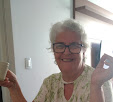FORGET ME
NOT TODAY
VERA LYNN
SONGWRITER:
JOHNNY MAY; BILL SINCLAIR & JOHNNY REINE
COUNTRY: U.
K.
ALBUM: THE
FORCES’SWEETHEART ULTIMATE
LABEL: MONO
RECORDING
GENRE: POP
YEAR: 1952
Dame Vera Lynn DBE (born
March 20, 1917 in East Ham, Essex, England) is an English singer and actress. She was born Vera Margaret Welch.
When she began performing in public at age seven, she
adopted her grandmother's maiden name (Lynn) as her stage name. Her first radio
broadcast, with the Joe Loss Orchestra, was in 1935. At this time she was being
featured on records released by dance bands including those of Loss and of Charlie
Kunz.
She was popular during World
War II. Her best known songs are We'll Meet Again and The White Cliffs of Dover.
Lynn has given much of her
time and energy to working with charities for former military servicemen, disabled
children, and breast cancer. She is still admired by veterans of the Second
World War. She was
named the Briton who best exemplified the spirit of the twentieth century in
2000
Forget Me Not is a song
that was recorded by Vera Lynn in 1952. It charted at a peak position of number
five on the UK Singles Chart.
The mere mention of Vera Lynn's name evokes images of
London skies filled with a barrage of balloons, and Britons riding out the
German blitz in shelters and underground stations. England's sweetheart during
the trying times of World War II, Lynn was still in her twenties when she took
on that role. She was born Vera Margaret Welch in London's East Ham, to Bertram
and Annie Welch, one year before the close of the First World War. She began
singing as a girl of seven, also studying dance as a child. She later took her
maternal grandmother's maiden name as her stage name, and her natural,
unaffected vocal style and charm brought Lynn early success on the radio. At
age 18, she was singing with Joe Loss' orchestra, and she'd also begun
recording for the Crown label. By the end of the '30s, after stints working for
Charlie Kunz's and Bert Ambrose's bands, Lynn got her own radio series. This
event coincided with the end of what was known as the "Phony War,"
that period in which men were being conscripted and sent overseas, re-armament
rushed, and nightly blackouts imposed, but no shots fired or bombs dropped. The
shooting war started in 1940, and it was around that same time that Lynn became
the host of the BBC radio program Sincerely Yours; the show became incredibly
popular with overseas servicemen who missed their girlfriends, and her regular
songs included such hopeful/heartsick ballads as "White Cliffs of
Dover," "We'll Meet Again," "Wishing," and
"Yours," which were taken to heart by the British public. Her
recordings -- now done for Decca Records, which had absorbed the Crown label
some years before -- all sold well, and Lynn also made several films during the
war years, appeared in a stage revue, and sang for troops in Asia. Her
sentimental brand of pop music was regarded as a huge help to morale, with Lynn
herself virtually a national treasure.
Forget me not today
Though I am far away
Just let my memory stay
Safe in your heart
Parting brings sorrow
Hope for tomorrow
Sweetheart, what e'er betide
Let true love be our guide;
Until I'm by your side
Forget me not!
Forget me not today
Though I am far away
Just let my memory stay
Safe in your heart
Parting brings sorrow
Hope for tomorrow
Sweetheart, what e'er betide
Let true love be our guide;
Until I'm by your side
Forget me not!
Until I'm by your side
Forget me not!







0 comentários:
Postar um comentário